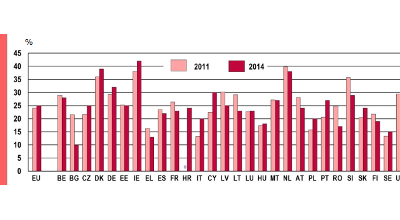#AskNavracsics – helping more young people to engage in their communities
Commissioner Tibor Navracsics, the European Commissioner for Youth, wants to help more young people to engage with their communities through volunteering and other activities. He recently discussed the broad issues with a number of young people online and in person, and now he would like to hear from many more young people across Europe.
He wants to hear your ideas and opinions on how to make it easier for young people to get involved in their communities.
These will be used by him and his staff to influence policies and practices at European and national levels.
His discussions with young people, along with more formal research into this topic, has highlighted some of the things that discourage young people from getting involved in their communities through volunteering and other activities, including:
- A lack of motivation and information about how to start volunteering,
- Too few role models that young people can be inspired by,
- Not enough information on the opportunities and projects that are available,
- The costs of taking part can be too high,
- Very little recognition of all the effort put in,
- Little acceptance by potential employers of the new skills gained through getting involved.
We want your views on what should be done to reduce or remove these barriers, and any others that make it difficult for young people to engage in their communities.
Please take the time to go to each question and add your own thoughts and suggestions.
We look forward to reading what you have to say!
And please come back later to rate all of the proposals and help us to understand which are most important to you.
You can keep up to date with the progress of this consultation by liking our Facebook profile and following us on Twitter.
We will also keep you up to date via email if you enter your email address after you post an idea or opinion (this is voluntary – your post will be safely stored even if you decide not to give us your email address!)
Thanks for taking part!!
background
Volunteering across Europe
The latest research for the European Union Youth Report in 2015 shows that around one in four (25%) young people across the EU were involved in some kind of voluntary activity. However, the same research shows that the rates of involvement were very differences between countries, with the highest over 40% and the lowest around 10%.
The following graph shows the different levels by EU country.
The research also shows that as young people got older, fewer take part in any kind of voluntary activities. In 2014, across the EU, 29% of 15-19 year olds were active, but only 23% of 25-29 year olds.
The following graph shows the diversity of activities that young people undertook as volunteers, the most popular being related to charity, humanitarian and development aid projects, and activities related to education, training or sports:
Who is responsible for community engagement?
Most community engagement and volunteering takes place at a local level, organised by groups such as NGOs, community groups, clubs and associations, and by local authorities. The responsibility for policies and laws concerning community engagement and volunteering lies with the national governments of the 28 EU Member States. This responsibility can also be passed down to regional and local governments, depending on how the country is organised.
The European Commissioner for Youth and the European Commission can help Member States to make improvements by suggesting new policies, conducting research, running projects, and sharing good practice between the different countries. This is done in cooperation with the Member States through the EU Youth Strategy, which has a specific section on Voluntary Activities.
As well as this, the European Commission runs the international volunteering initiatives European Voluntary Service (EVS) (part of the Erasmus+ programme) and EU Aid Volunteers. It also helps to promote volunteering through the European Youth Portal and by giving funding through the Erasmus+ programme.




